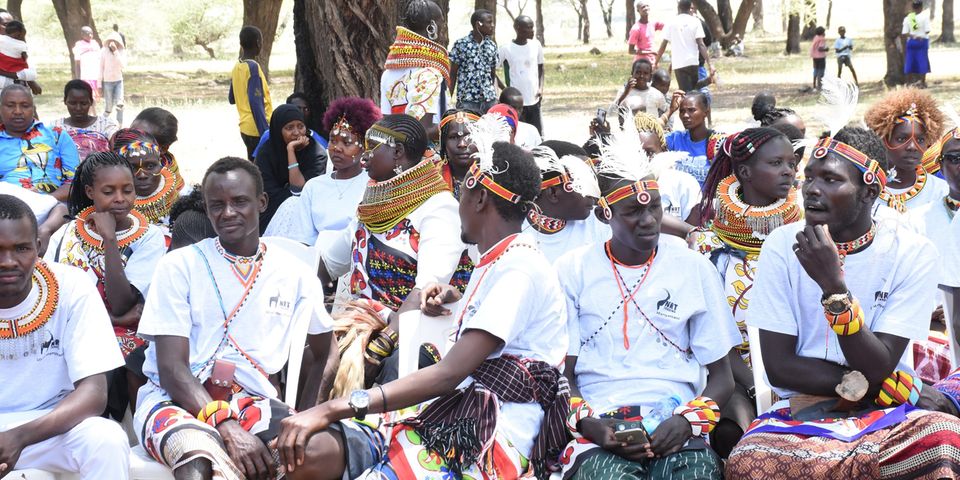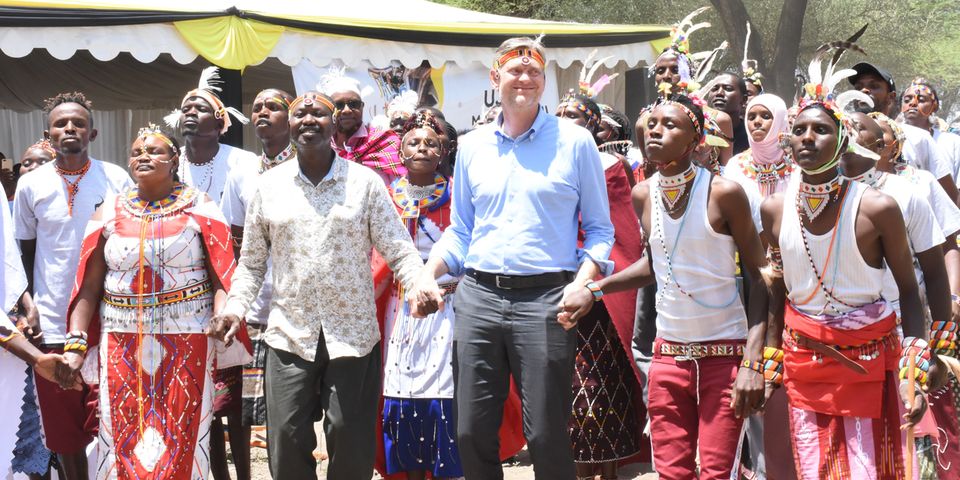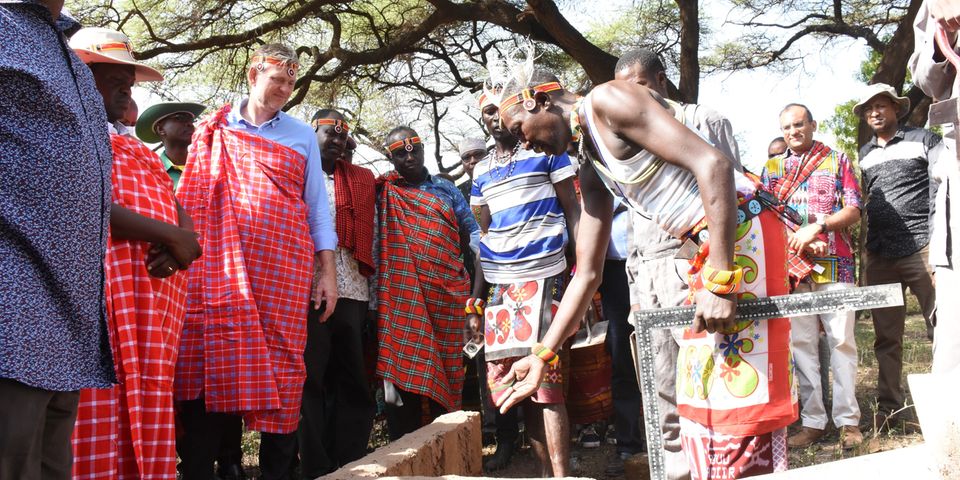Envoy lauds pastoralist women for taking up technical courses


Danish Ambassador to Kenya Ole Thonke has hailed the increasing number of pastoralist women taking up free vocational training courses offered by the Northern Rangelands Trust (NRT) to improve their lives and increase their income.
During this year’s NRT Trading’s Ujuzi Manyattani third graduation in Kisima, Isiolo County, 337 trainees from six conservancies graduated with various courses, 159 of them being women — an increase from six in 2021.
The training programme targets young men (morans) and women with no formal education in an effort to enable them diversify their livelihoods and reduce overreliance on pastoralism, which is under threat due to prolonged drought and climate change.
Earn regular income
The envoy said equipping many women with marketable skills such as catering, hairdressing, mobile phone and motorcycle mechanics as well as electrical engineering will enable them earn regular income to support their families and beat hunger.
Mr Thonke said technical skills are the engine to a growing economy and encouraged other young men and women to take up the courses to get hand-on skills to start their own ventures.
“Regardless of whether there is drought or not, you will still earn some income. Use the skills to change your lives and that of the community by creating jobs for yourselves and employing others,” he told the graduates.
He was accompanied by Usaid Kenya and East Africa director Aurelia Micko and Mr Peter Kamau, a director at the State Department of Vocational and Technical Training, among other dignitaries. NRT boss Tom Lalampaa said the training is offered within the conservancies to ensure the trainees access the knowledge with ease.
“The idea is to assist them get into gainful employment by equipping them with marketable skills needed even at village level as an alternative source of income to livestock,” Mr Lalampaa said.


Reduce illiteracy
Isiolo Deputy Governor Abdi Issa said the programme will go a long way in reducing illiteracy levels and ending gender-based violence and outdated practices such as female genital mutilation.
His Samburu counterpart Julius Leseeto said the training will reduce poverty and help the youth shun crimes such as highway banditry and instead engage in decent work.
“The programme is a testimony that dropping out of school or having never set foot in class is not the end of life,” he said.
Ms Micko said the US government will continue supporting conservation, governance, health, agriculture and peace building programmes for improved livelihoods especially in northern Kenya.
Among the graduates was a Class Eight leaver, Pauline Karamamuro, from Ltungai Conservancy who was married off aged 18 years and had no opportunity to continue with her education.
Tailoring business
“I will immediately start a tailoring business to earn income and support my family. Women need to be educated not married off,” she said after receiving a sewing machine. Others were 36-year-old mother of six, Jane Asimit, and Emily Chebet from Nakuprat Gotu Conservancy who graduated with tailoring and hairdressing courses.
“The skills will enable me to earn income to support my family and pay fees for my children,” Mrs Asimit said. Ms Rose Lesaibilie, who graduated with catering skills, said she will open a hotel within her local Ltungai community conservancy to target the locals.
“I never used to know how to cook but if I prepare a meal for you today, you will keep coming back for more,” she said amid laughter from the public. All the graduates were given work tool kits as an incentive to enable them start businesses. Also in attendance was Kenya Wildlife Conservancies Organisations boss Dickson Kaelo, NRT board chairman Dr Julius Kipng’etich and Isiolo County Education Executive Abdinassir Hajj Daud.
